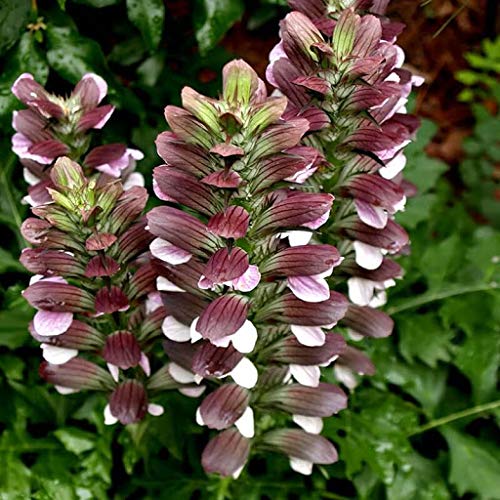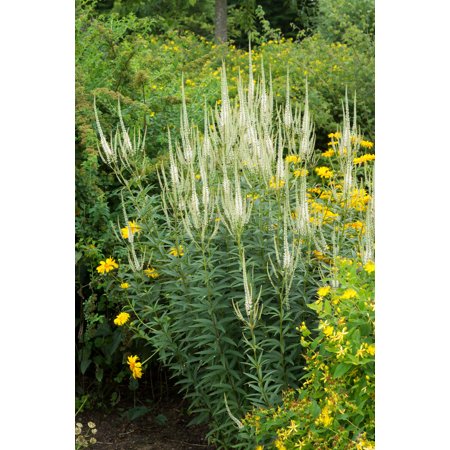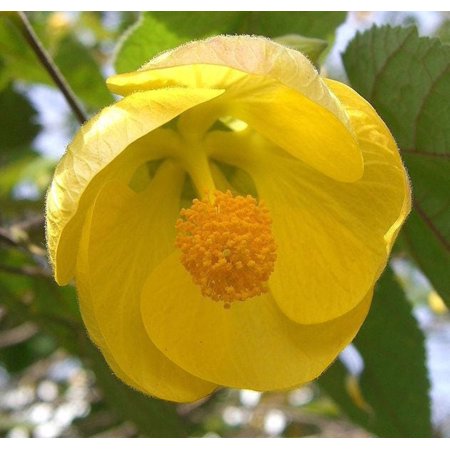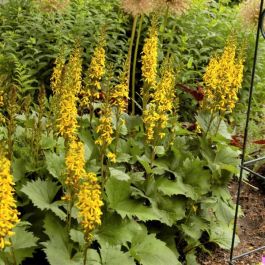5 Unusual Tall Plants for Shady Gardens That a Horticulturalist Says We Should be Using More
Step off the beaten path with these unusual tall shade-loving perennials — experts love them!
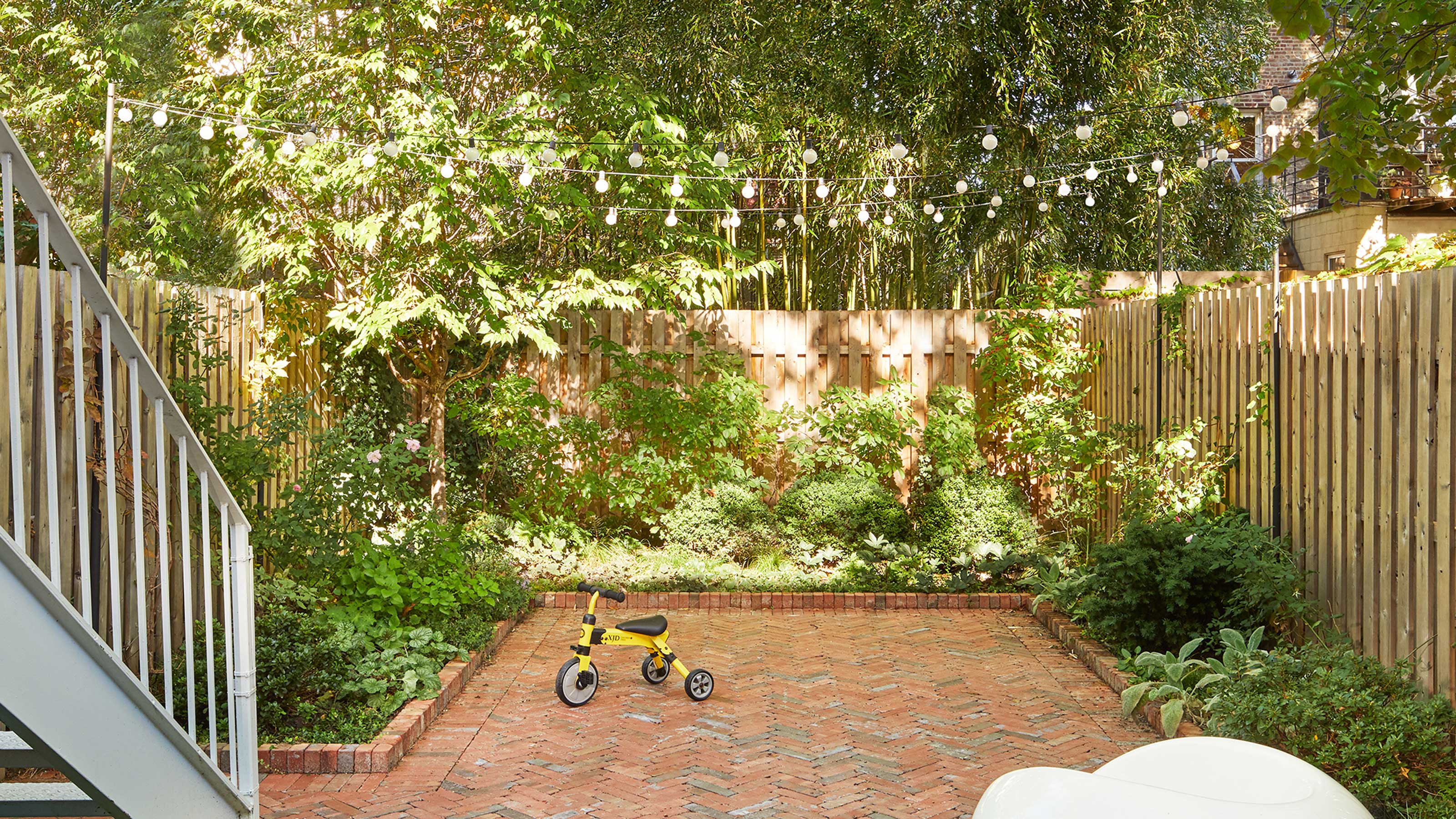
The Livingetc newsletters are your inside source for what’s shaping interiors now - and what’s next. Discover trend forecasts, smart style ideas, and curated shopping inspiration that brings design to life. Subscribe today and stay ahead of the curve.
You are now subscribed
Your newsletter sign-up was successful
There are some tall plants for shade that have been kept in the dark for far too long, literally – it’s time to fix it! We’re all guilty of leaning towards full sun-loving flowers like dahlias and roses. After all, they’re pretty right?
But we’re here to say shade-loving plants can be just as beautiful (and probably deserve a bit more limelight). When you think of plants for a shade garden, your mind probably goes to low-growing perennials like hostas and ferns. However, there’s a whole range of taller shade-appropriate plants that will rival any full sun bed for impact.
Luckily we’ve got a pro horticulturalist on hand to reveal her five all-time favorite tall plants for a shaded yard. They’re so beautiful, even your dahlias will be jealous!
1. Bear’s Breeches

Don’t be fooled by its rather unusual common name, Bear’s Breeches (Acanthus mollis) is a real showstopper plant for shady flower beds, and a personal favorite of horticultural expert Leslie Halleck.
She says ‘Acanthus mollis, or “Bear’s Breeches”, offers large, glossy tropical-looking foliage punctuated by tall (5-6 ft) inflorescence bearing striking white and purple flowers. They always remind me of snapdragon flowers.’
If you want a variety that gets the expert’s seal of approval, Leslie particularly likes white flowering types. “Rue Ledan” is a sophisticated, white-flowered cultivar, and “Whitewater” is a stunning white variegated cultivar,’ says expert Leslie.
Gardeners with heavier soils need not worry either, as Bear’s Breeches thrives in heavy moist soils like clay.
The Livingetc newsletters are your inside source for what’s shaping interiors now - and what’s next. Discover trend forecasts, smart style ideas, and curated shopping inspiration that brings design to life. Subscribe today and stay ahead of the curve.
A word of warning though. Bear’s Breeches has incredibly deep roots that are notoriously hard to get rid of once established. So if you choose this plant for your shaded bed, make sure it’s in a position that you’ll be permanently happy with and is large enough to accommodate its mature size. Or else, make sure you've got a tool that's good for deep root removal — we like the Root Slayer shovel from Walmart.
Hardiness zone: 7-10

Leslie F. Halleck is a Certified Professional Horticulturist and UCLA Extension Horticulture Instructor. Halleck is the author of several books including Gardening Under Lights: The Complete Guide for Indoor Growers and Plant Parenting: Easy Ways to Make More Houseplants, Vegetables and Flowers.
2. Culver’s Root
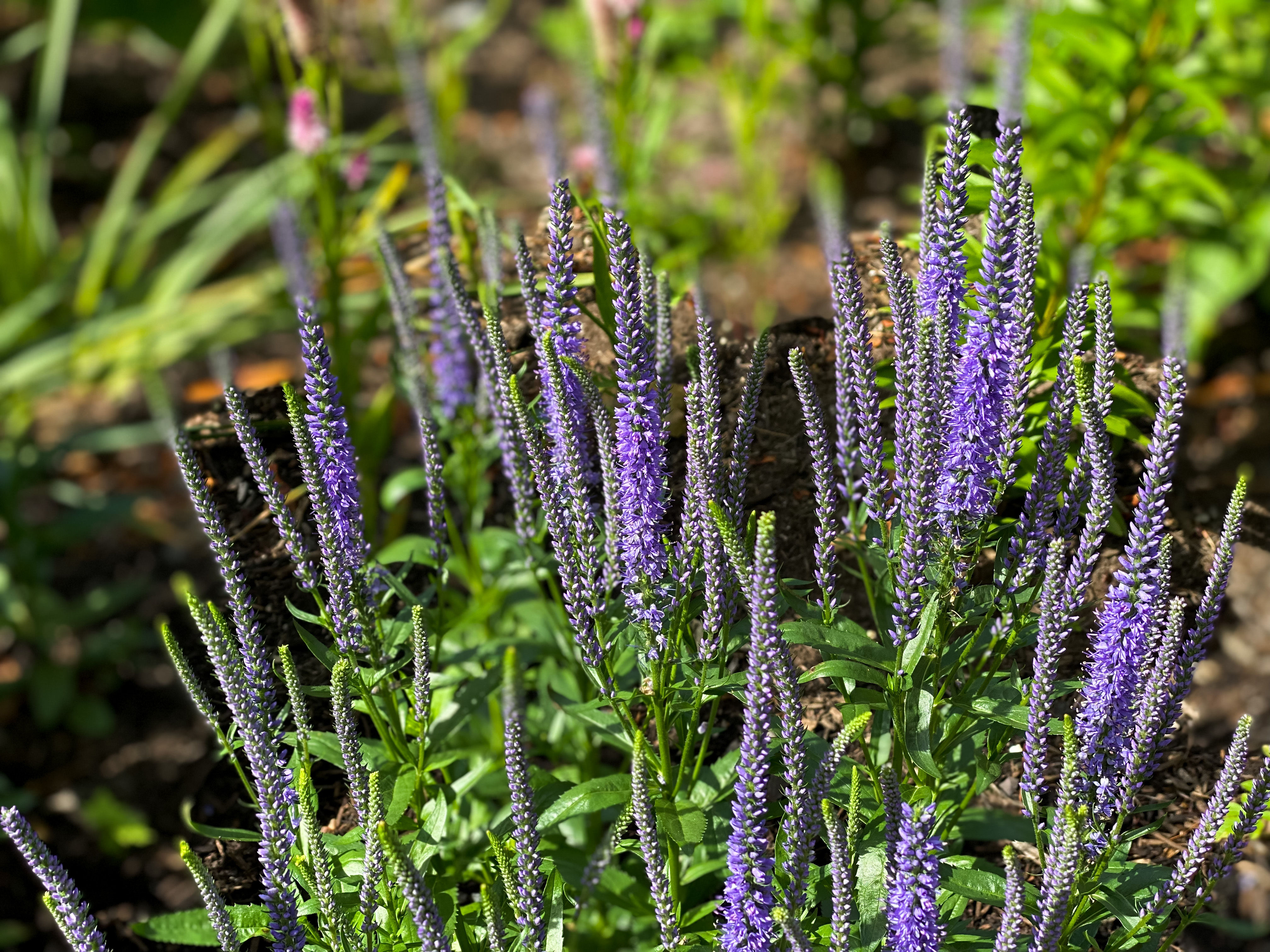
If you’re a fan of tall purple-spired flowers like salvias or lupins but don’t have enough sun in your yard, you need to look out for Culver’s Root at your next nursery visit for landscaping with flowers.
As Leslie explains, this plant is one of her favorites for adding height in shady yards. ‘Veronicastrum virginicum, or “Culver’s Root”, produces white to pinkish spikes of tiny flowers, which create a sort of floating candelabra look in a shady garden. Plants can grow up to 6 feet tall and have a feathery natural vibe.’
The wispy airy nature of these flowers makes them a great choice for Prairie-style yards, or even a cottage-core vibe. If you really want to double down on that cottage woodland feel, complement Culver’s Root with a scattering of foxgloves – another flower that loves shade. Just remember that foxgloves are biennials, so you will have to plant foxgloves for two consecutive years to get flowers every year.
Hardiness zone: 3-8
3. Green Dream
When it comes to conversation-starter plants, Green Dream proves it’s better to stand out than blend in. With its delicate bell-like flowers echoing the dainty flowers of winter hellebores, this plant is the perfect partner for the adventurous gardener.
‘Mathiasella bupleuroides is an unusual carrot family member with delightful green flowers – or rather clusters of tiny pink to black flowers enveloped in jade green involucres, which stay on the plant through fall,’ says expert Leslie. ‘Commonly referred to as “Green Dream” plants can grow to between 3-5ft.’
But it’s this plant’s coloring that makes it truly magical. Not only is its jade green foliage undeniably attractive, but come fall when the temperatures start to cool down the delicate bell-shaped flowers will take on a dreamy pink hue.
Just be sure to plant this flower in a shady area that is well-draining too as these are some of the best plants for a dry garden. Green Dreams are native to Mexico and while they don’t like baking in the sun, they also won’t tolerate sitting in waterlogged soils.
Hardiness zone: 7-10
4. Flowering Maple
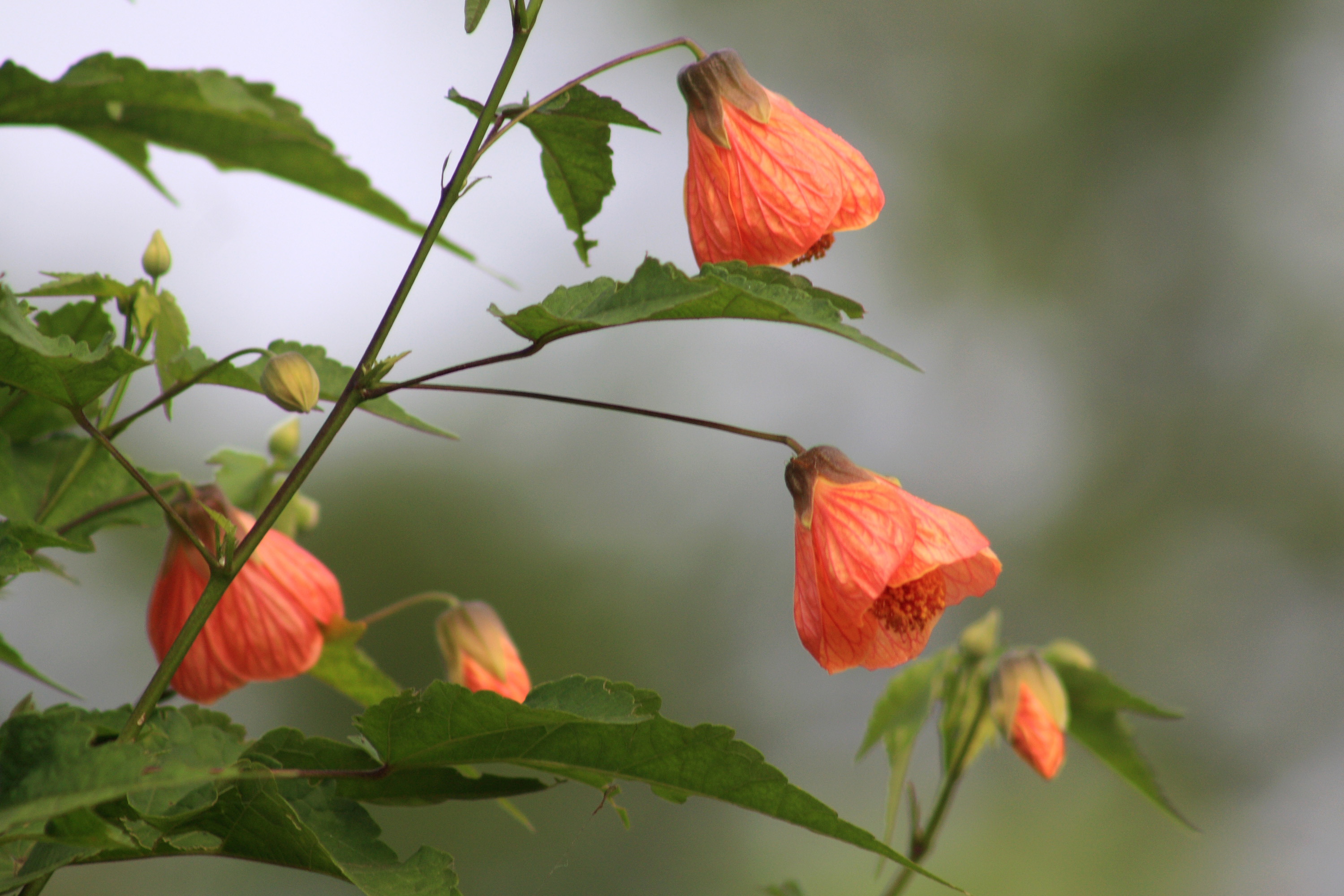
We love unusual flower finds, and Flowering Maple definitely qualifies! Often called “Chinese Lanterns”, these shrub-like plants feature incredible drop-shaped flowers that make great container gardening plants, especially on hanging baskets where the flowers gently fall over the edges.
Flower expert Leslie says ‘Abutilon spp., or “Flowering Maple”, is one of my very favorite flowers for light shade with dappled or morning sun. There is a wide selection of species and cultivars, with growth habits ranging upwards of 10 feet. I have a penchant for peach and orange flowering cultivars such as “Marilyn’s Choice”, “Orange Hot Lava”, or “Bartley Schwarz”.’
Flowering Maples are tender plants though, so if you live in an area that experiences frosts it’s best to plant them in containers that can be moved inside before the first frost.
To maintain its dense foliage and increase flower production it’s good practice to pinch out leggy stems in the growing season too. Simply take the tops of the stems down to the third set of true leaves and squeeze with your nails until they break off. This will encourage more side shoots, and more side shoots = more flowers!
Hardiness zone: 8-10
5. Ligularia ‘The Rocket’
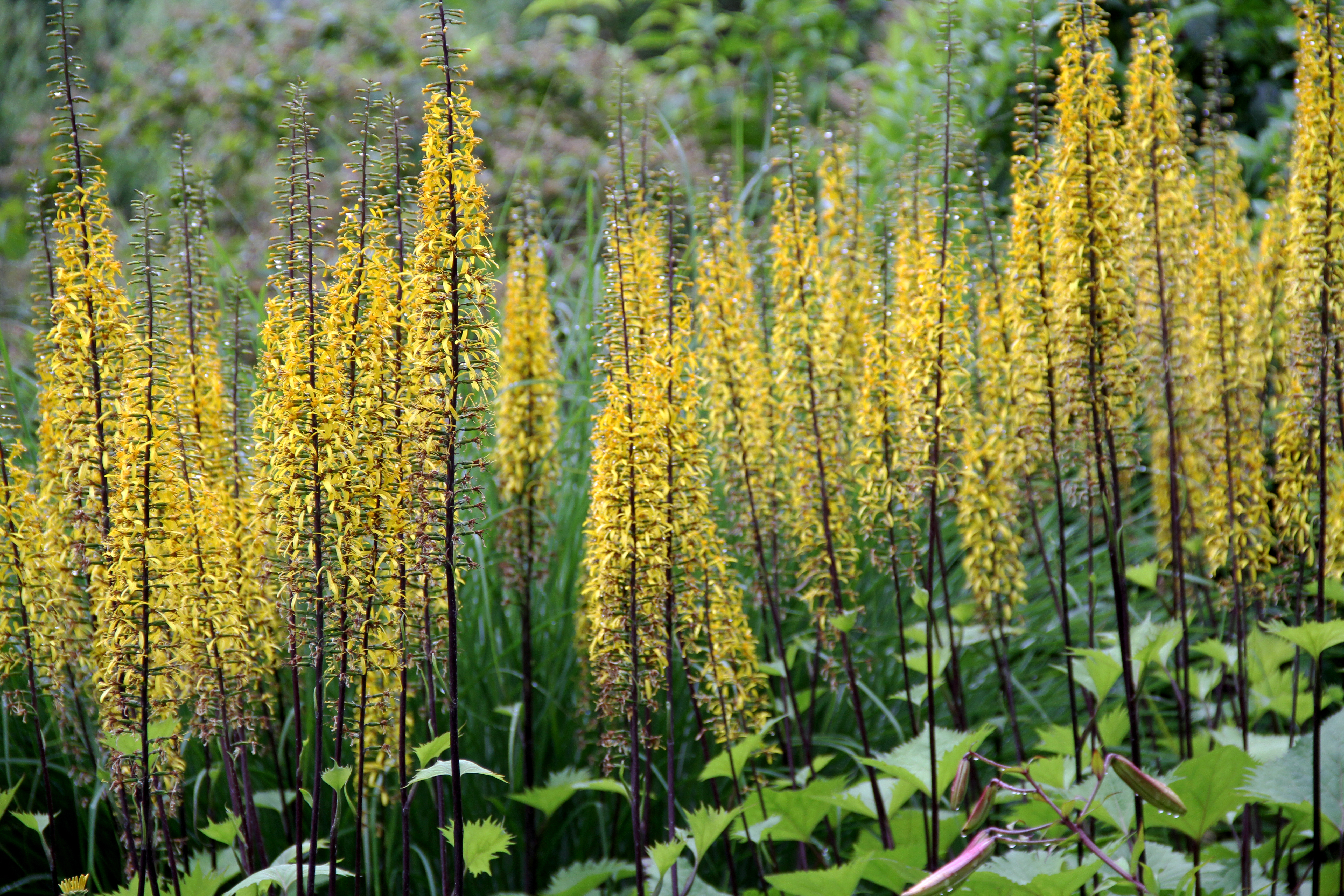
With six-foot bright yellow blooms, it’s hard to miss a flower as striking as Ligularia!
According to expert Leslie, it doesn’t get more dramatic than this unusual plant. ‘Ligularia ‘The Rocket’ is an impressive bloomer even in heavy shade. The bright spikes of lemon-yellow flowers reach upwards of six feet tall, creating quite a dramatic display. The toothed foliage is also quite bold all on its own!’
Unlike other shade plants, Ligularia loves moist water. So much so, that it will even do well in swampy conditions next to water! The only downside to these striking plants is that slugs and snails find them equally as attractive. Investing in slug-preventatives like sheep’s wool or copper tape to get rid of snails is essential to keeping this plant off the lunch menu. This copper mesh from Amazon is one of our favorite methods.
Hardiness zone: 4-9
How do you add height to a shade garden?
While many shady plants are ground level, these tall shady plants are one of the best way to ensure your shade garden has levels to it.
Alternatively, you could use any of the great climbing plants for shade to use height by growing up a trellis or fence.
Lastly, there's plenty of good privacy trees for shade you can add into your yard design too — these will be even bigger than these tall plants and can be used to create a focal point for your yard space.
Matilda Bourne is a freelance homes, gardens and food writer, stylist and photographer. Known for creating and capturing content for multiple international brands, her work has been featured in The Telegraph, The Daily Mail, and Hello! magazine. When she’s not writing, you can usually find her tending to her much-loved garden and scouring thrift stores for vintage furniture.
